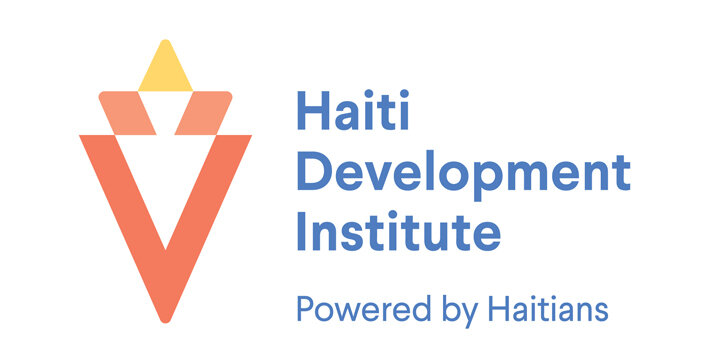Why you should care about the end of TPS for Haitians in the United States
Background
On May 22, 2017, Department of Homeland Security Secretary John F. Kelly announced the decision to extend the Temporary Protected Status (TPS) designation for Haiti for only an additional six months, until January 22, 2018. Secretary Kelly cited Haiti’s forward progress since the infamous 2010 earthquake struck Haiti, killing more than 220,000 and displacing close to 1.5 million people, [i] as the reason behind his decision:
“Haiti has made progress across several fronts since the devastating earthquake in 2010. The Haitian economy continues to recover and grow, and 96 percent of people displaced by the earthquake and living in internally displaced person camps have left those camps. Even more encouraging is that over 98 percent of these camps have closed. Also indicative of Haiti’s success in recovering from the earthquake seven years ago is the Haitian government’s stated plans to rebuild the Haitian President’s residence at the National Palace in Port-au-Prince, and the withdrawal of the United Nations Stabilization Mission in Haiti.” [ii]
Despite Secretary Kelly’s praise for Haiti’s progress since the earthquake, many politicians, [iii] diaspora, [iv] nonprofit and philanthropic leaders [v] are discouraged by this decision. Haiti remains a fragile nation due to the destruction by Hurricane Matthew, cholera epidemic, and unstable government. By signalling a precipitous end to TPS, the Trump Administration has created mass uncertainty and fear within the Haitian community.
Why you should care
Haitians who have benefited from TPS (over 58,000 individuals) have been actively contributing to the American economy and communities, while also providing much-needed support back to Haiti through remittances—which currently account for 25 percent of Haiti’s GDP.[vi]
Haitians granted TPS are not eligible to receive food stamps/SNAP benefits, TAFDC cash assistance, Supplemental Security Income (SSI) or Medicaid, [vii] and therefore the cost to American taxpayers is negligible. In fact, deporting all Salvadoran, Honduran, and Haitian TPS holders would cost taxpayers $3.1 billion. [viii] It would also result in a $6.9 billion reduction to Social Security and Medicare contributions, as the United States would lose the revenue that these immigrant populations contribute. [ix] Finally, it would lead to a $45.2 billion reduction in GDP over a decade. [x]
Many advocates of a TPS extension believe that ending the program would be a double blow to Haiti’s fragile economy. They state that the simultaneous reduction in remittances and the dramatic influx of returning Haitians in need of services and economic opportunities would severely weaken an already unstable economy. On the other hand, critics of the extension state that TPS is designed to be “temporary,” and avow that it is not the role of the United States government to support these individuals in perpetuity. Whatever your opinion, it is clear that a long-term strategy is needed to build Haiti into a thriving economy with opportunity and justice for all.
Promoting long-term change and development in Haiti has been the mission of the Haiti Fund (now Haiti Development Institute) since its inception. One of the greatest failings of philanthropy and development in Haiti has been a lack of continuity and sustainability. Most aid has been delivered in the form of short-term projects. After the earthquake, local Haitian organizations and businesses only received an estimated 0.6% of all of the emergency relief and reconstruction aid! [xi]
In addition, private philanthropy to Haiti has continued to decline since the 2010 earthquake. [xii] The small amount of aid that remains often fails to reach Haitian organizations and businesses, even though research demonstrates that when decisions are made locally and resources are used locally, the impact is magnified. Therefore, it should come as no surprise that the lack of systemic development change in Haiti can be largely attributed to the failure to invest in Haitian civil society and strong Haitian institutions.
Haiti Development Institute (HDI) is built on the belief that an integrated approach to development is necessary to usher in real social change in Haiti. We know that local leaders, civil society organizations, and social entrepreneurs have the potential to bring about transformative changes to benefit local communities and revitalize the entire economy. We believe that building a new Haiti will only be possible if strong grassroots organizations are at the forefront of that change—leading communities to take part in and lead their own development.
As the deadline for TPS approaches, it is important that as donors, nonprofit leaders, members of the diaspora, or friends of Haiti, we work in tandem on sustainable long-term solutions that empower Haitian leaders. Organizations like HDI act as bridge builders to bring together philanthropists, nonprofits, and the government to address the problems. In short, we must create the conditions necessary so that people are able to safely return to Haiti, and build a future where men, women, and families want to return, to visit, and contribute to growing the thriving and vibrant Haitian culture.
What you can do
Call your congressional representative and state senators to ask them to renew TPS in January. Unsure of who your representative is? You can locate their information here: http://www.house.gov/representatives/find/ and here https://www.senate.gov/reference/common/faq/How_to_correspond_senators.htm.
Support legal advocacy for Haitians with TPS status through organizations like the Institute for Justice and Democracy in Haiti (www.ijdh.org) and the Irish International Immigrant Center (now Rian Immigrant Center) in Boston (www.riancenter.org/), as well as other excellent immigrant legal advocacy organizations across the United States.
Donate to Haitian-led organizations directly or through an intermediary like the Haiti Development Institute. Contact HDI at elizabeth.fischelis@tbf.org to learn more.
Support HDI. www.tbf.org/donors/forms/haiti-development-institute.
[i] http://www.cnn.com/2013/12/12/world/haiti-earthquake-fast-facts/index.html
[ii] https://www.dhs.gov/news/2017/05/22/secretary-kellys-statement-limited-extension-haitis-designation-temporary-protected
[iii] http://www.ijdh.org/wp-content/uploads/2017/03/Haiti-TPS-Letter.pdf
[iv] http://www.miamiherald.com/opinion/letters-to-the-editor/article146518379.html
[v] https://politicsofpoverty.oxfamamerica.org/2017/06/five-places-secretary-kelly-should-have-seen-on-his-trip-to-haiti/
[vi] http://data.worldbank.org/indicator/BX.TRF.PWKR.DT.GD.ZS?locations=HT
[vii] http://www.masslegalhelp.org/immigration/haiti/tps-benefits
[viii] https://www.ilrc.org/sites/default/files/resources/2017-04-18_economic_contributions_by_salvadoran_honduran_and_haitian_tps_holders.pdf
[ix] https://www.ilrc.org/sites/default/files/resources/2017-04-18_economic_contributions_by_salvadoran_honduran_and_haitian_tps_holders.pdf
[x] https://www.ilrc.org/sites/default/files/resources/2017-04-18_economic_contributions_by_salvadoran_honduran_and_haitian_tps_holders.pdf
[xi] Center for Economic and Policy Research, http://cepr.net/blogs/haiti-relief-and-reconstruction-watch/.
[xii] OECD, “Aid at a Glance,” http://www.oecd.org/countries/haiti/aid-at-a-glance.htm.
